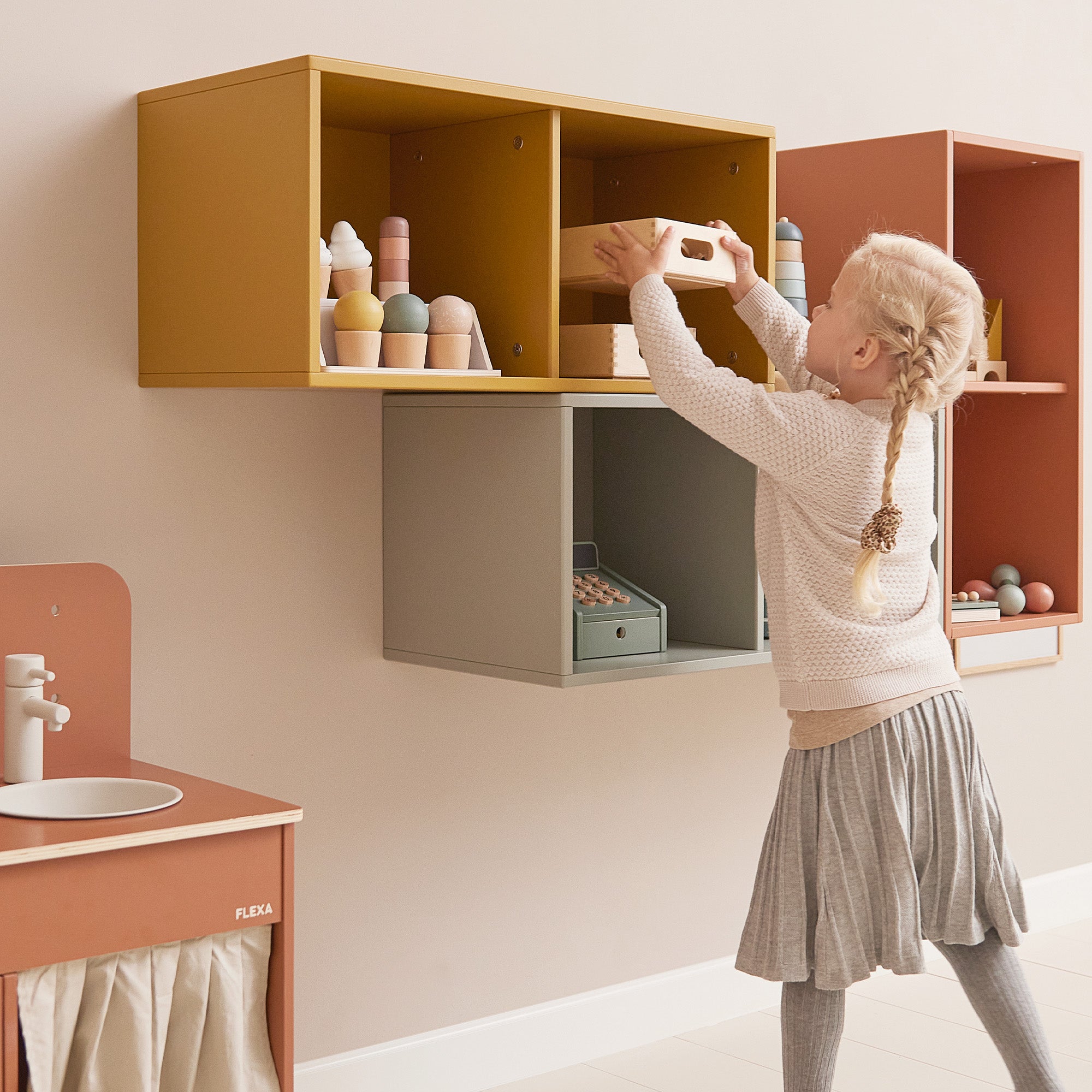Children are experts at making a mess, and they’re not as good at cleaning up after themselves – it’s something they have to learn. So, how can you teach your child to be neat and tidy? We’ve asked Family Advisor, Lola Jensen, and here are her top three tips.
Highlights:
- You can help your child become good at cleaning up after themselves by:
- Making tidying up part of your routine – do a little every day or once a week.
- Breaking down the job into manageable tasks – designated storage boxes help.
- Assess your child’s energy level – and align your own expectations.
- As your child gets older, they can help with household chores too, like cleaning and cooking.
"Your Mum Doesn't Work Here!" Or Does She?
We've all been there. In hectic situations, where everyone is too tired, or late for something, so you end up doing everything yourself. But what might look like the fastest route to a neat and tidy home, is in fact doing yourself and your child a disservice, says Family Advisor, Lola Jensen.
"If you always clean up after your child, they’ll never learn to do it themselves. You also risk a family in constant conflict over 'who does what and when.' You might even end up scolding, saying things like 'Now I'm counting to 3: one... two...' or 'NOW DO as you’re told!' or something many parents tend to say: ‘if you know how to make a mess, you should know how to clean it up.’”
So, what can you do to stop yourself from saying those things and also give your child some neat and tidy habits? Lola Jensen suggests you try to:
1. Make Tidying Up Part of Your Routine
"Children, and people in general, don’t like to be told things out of the blue, e.g., 'it's too messy in here – you need to tidy up now.' Such a message only spoils the fun. But when the tidying up is pre-scheduled and happens at the same time, for example just before dinner or when you vacuum clean on Saturdays, then everyone in the family can relax. And it becomes more of a regular habit than a boring chore," says Lola Jensen and adds:
"With small children, you can't expect them to put everything in the right boxes. At this age, everything is a game, and they’d much rather knock over all the boxes. But from around age 6-7, most children are ready to take on the responsibility of cleaning up after themselves. Practice the routine - day after day, week after week - and be patient, it will come in the end."
2. Break Down the Job into Manageable Tasks
"A message like 'please clean up your room' is too vague for children. They wouldn't know where to start. Instead, try breaking down the job into little tasks. For instance, by saying ‘you can begin cleaning up this part of your room, and when I’m done peeling the potatoes, I’ll come in and help you do the rest.’ This way, you can gradually increase the tasks at hand,” says Lola Jensen and adds:
“It also helps to have designated storage boxes for all the different categories of toys, so it's clear to your child where everything goes."
3. Assess Your Child’s Energy Level
"Sometimes you have to stop and reconsider as a parent. It's a big world today, and many children come home from kindergarten, school and leisure activities completely tired and exhausted. On days like these, lower your expectations or try surprising your child by cleaning up their room for them. What you gain from this, is your child will mimic your behaviour and surprise you right back another time," says Lola Jensen and concludes by saying:
"As your child gets older, you can gradually let them become responsible for household chores like dusting, making their own bed, emptying the dishwasher, cooking dinner, packing their own school bag, and keeping track of their own homework assignments. Once your child reaches puberty, piles of dirty clothes will once again start to pile up in their room, and all you can do is close the door and look forward to the day they end puberty, and all the good habits come back."

